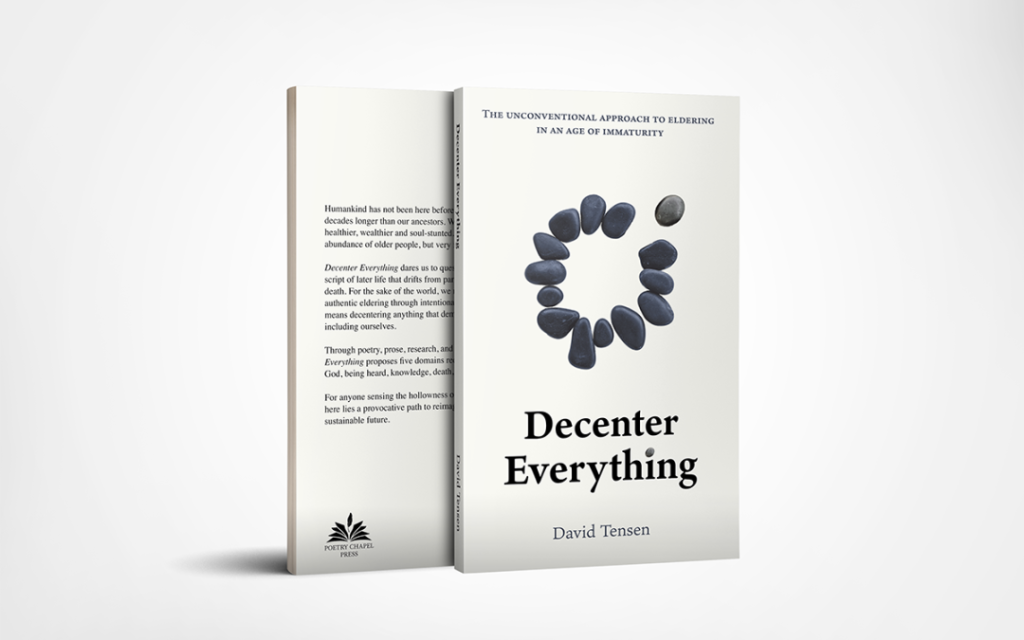..and we hardly noticed their departure.
This exodus wasn’t marked by ceremony or collective grief—it happened gradually, invisibly, as the perfect century-long storm of wars and progress transformed the landscape of ageing in the West into some kind of an endless summer for the soul. The result? We’ve inherited a cultural wound so profound that many of us approaching our autumn years can scarcely recognise it, let alone name it.
Disrupted Lineage
Stephen Jenkinson names this wound precisely: we’re facing not just a crisis of elderhood, but its near-complete annexation by a culture of age without ageing, retirement without ripening. The post-war generation, our Baby Boomers, inherited a fractured lineage. Their own elders, shaped by depression and war trauma, often carried a stoic silence that masked deeper developmental arrests. These were men and women who survived by compartmentalising, by pushing forward, by refusing to look back—a psychological strategy that served them in crisis but failed to nurture the soul-making necessary for true elderhood.
Difficulty in Accepting Transitions of Aging
James Hollis reminds us that this developmental crisis stems from our culture’s profound misunderstanding of life’s second half. We’ve created a society that promises endless youth, endless consumption, endless distraction—anything to avoid the necessary descent into what Richard Rohr calls the “second simplicity.” Sharon Blackie suggests this avoidance manifests differently yet devastatingly across genders—while men flee from the confrontation with mortality, women are often denied even the cultural space to age authentically, pressured instead to maintain a perpetual spring in defiance of their autumn wisdom. This has produced what might be history’s first elderless generation: the Boomers, caught between their traumatised parents and their own unmetabolised youth, never witnessed genuine elderhood in action. Instead, they saw retirement—that peculiar modern invention that transforms the autumn and winter season of life into an extended adolescence, complete with its focus on leisure, consumption, and self-referential pleasures.
Lost Connection to our Earth
The consequences of this developmental vacuum are far-reaching. Bill Plotkin’s work reveals how this absence of authentic elderhood has ruptured our relationship with the very planet which our souls are soul of, creating generations of developmentally arrested adults who mistake financial security and environmental dominance for psychological maturity and progress. We’ve lost the ecological consciousness that traditionally emerged through the ripening process of genuine elderhood, replacing it with what Jenkinson calls “elderly idealism”—a state of perpetual youth-mindedness that refuses the gravitational pull toward genuine maturity.
A Wound and an Invitation
For those of us now crossing the threshold into life’s autumn season, this inheritance is both a wound and an invitation. We stand at a crucial developmental crossroads: we can either perpetuate the pattern of arrested development that has characterised recent generations, or we can choose a more challenging path—one that requires us to rebuild and reimagine elderhood and the very practice of eldering. This is no small task, because like most of those born in the 20th century, we must learn to elder without elders.
Courtesy of David Tensen from his book “Decentre Everything….The Unconvential Approach to Eldering in an Age of Immaturity”
